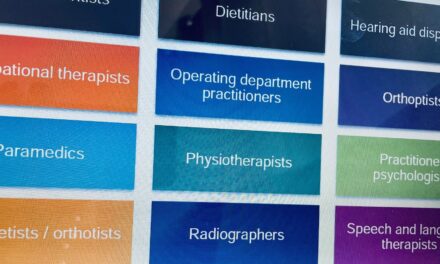Accepted outcomes will become a new, paper-based route for resolving fitness to practise concerns without a full panel hearing, in what the PSA describes as a “fundamental change” to how regulators handle fitness to practise concerns.
Under upcoming legislative reforms—modelled on the Anaesthesia Associates and Physician Associates Order (AAPA Order)—regulators will gain powers to use case examiners to:
- Assess impairment and sanction proposals solely on written evidence
- Offer final measures to registrants who agree to findings, impairment and sanction (“accepted outcomes”)
- Impose outcomes where registrants fail to respond within a set period
Social Work England already uses a similar accepted disposal process, but other healthcare regulators will adopt these powers once their legislation is updated to align with the AAPA Order.
What Are Accepted Outcomes?
Accepted Outcomes are a new mechanism for resolving fitness to practise cases where:
- The registrant accepts the facts of the case.
- They acknowledge their fitness to practise is impaired.
- They consent to the proposed sanction.
What the New Process Involves
Under the Accepted Outcomes model:
- Case examiners assess whether a case is suitable for resolution without a hearing.
- Registrants must agree to the facts, impairment, and sanction.
- If accepted, the outcome is published, subject to transparency considerations.
Important to note that under the new Accepted Outcomes process, where a registrant does not respond to a case examiner’s offer of an accepted outcome within the prescribed period, a case examiner can impose a final measure without their agreement.
The PSA emphasises that hearings remain essential for:
- Disputed facts or complex evidence
- Testing insight or remediation
- Cases involving serious misconduct or public interest concerns
The PSA guidance provides clear direction on what regulators should consider when offering Accepted Outcomes.
Insight and remediation
Insight and remediation are vital indicators of professional accountability. The PSA guidance makes clear that regulators should carefully consider whether the registrant has demonstrated genuine understanding and improvement, especially in cases involving boundary violations or safeguarding issues. If in doubt, a hearing may be needed to assess the genuineness of a registrant’s insight and remediation.
Other Factors
Regulators must assess whether the registrant fully accepts the findings and the impairment of fitness to practise. If there are disputed facts or conflicting evidence, an Accepted Outcome is unlikely to be appropriate, as a hearing may be needed to test the registrant’s account. In addition, case complexity plays a role—cases involving nuanced professional judgment or potential patterns of concern may warrant fuller scrutiny.
For allegations involving dishonesty, sexual misconduct, or other serious concerns, public interest may demand a public hearing, even when the registrant accepts the facts and proposed sanctions.
The need for Legal Advice
Accepted Outcomes may present regulators with a quicker and more efficient process for resolving fitness to practise cases, but registrants should consider their position, acceptance, and response very carefully.
Some fitness to practise cases may be suitable for Accepted Outcomes, but registrants should seek legal advice based on the specific circumstances of their case. Agreeing to an Accepted Outcomes resolution holds professional and reputational implications for healthcare professionals. Expert legal advice will evaluate your case and advise if the Accepted Outcomes process is suitable or if challenging the evidence is justified, which is often the case.
Furthermore, a sanction – including suspension or erasure – could be imposed on healthcare professionals is they fail to properly engage with the Accepted Outcomes process. Prompt legal advice is essential for timely and effective engagement with regulators.
Finally, a key consideration is evidence of insight and remediation. In most cases, insight and remediation takes a long time to achieve, and evidence again pointing to the importance of seeking legal advice and representation at the earliest possible opportunity.
When things go wrong, we are here when you need us
Kings View Chambers has over 30 years’ combined experience representing heath and care professionals at all levels. We are a leading fitness to practise defence chambers that have a proud record of consistently achieving excellent outcomes for our clients.
Kings View Chambers are rated excellent by its clients. As public access barristers, you can instruct us directly without having the additional expense of hiring a solicitor.
It is a well-established fact that healthcare professionals who seek legal advice and representation at an early stage in any fitness to practise process, generally, receive better outcomes and lesser sanctions, if any. We can advise on the right strategy to take and represent you before a fitness to practise hearing.
Disclaimer: The accuracy and information of news stories published on this website is accurate on the date of publishing. We endeavour to update stories if information change. You can contact us with change and update requests. Where possible, we will link to sources. Content on this website is for guidance purposes only. We cannot accept any responsibility or liability whatsoever for any action taken, or not taken. You should seek the appropriate legal advice having regard to your own particular circumstances.

Restoration Courses
Courses suitable for any health and social care practitioner who is considering making an application for restoration back onto the register.

Insight & Remediation
Courses that are suitable for any healthcare practitioner who is facing an investigation or hearing at work or before their regulatory body.

Probity, Ethics & Professionalism
Courses designed for those facing a complaint involving in part or in whole honesty, integrity and /or professionalism.







Recent Comments